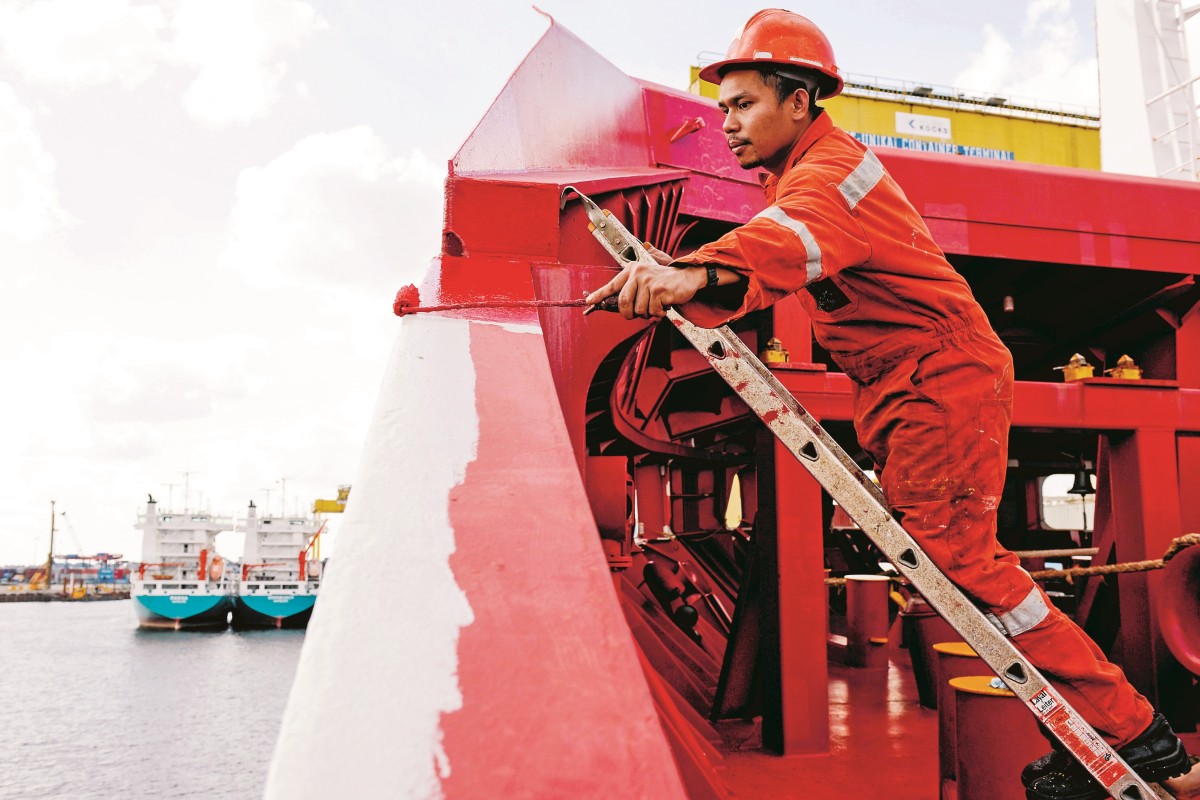You are here
Filipino seamen, despite powering global trade, face growing threats to their livelihoods
Filipino seamen, despite powering global trade, face growing threats to their livelihoods
Huw Watkin 6 Jun, 2019 https://www.scmp.com/lifestyle/article/3013149/filipino-seamen-despite-p...
A Filipino seaman works on German cargo vessel MV Merwedijk in Hamburg harbour, Germany. Photo: Alamy
Smaller crews and competition from nations such as Vietnam and China are among pressures driving a sharp decline in the number of Filipinos working at sea
The Philippine maritime sector is in “chaos and confusion”, dogged by “bureaucracy and incompetence”, according to industry lobby group
A Filipino seaman works on German cargo vessel MV Merwedijk in Hamburg harbour, Germany. Photo: AlamyA Filipino seaman works on German cargo vessel MV Merwedijk in Hamburg harbour, Germany. Photo: Alamy
A Filipino seaman works on German cargo vessel MV Merwedijk in Hamburg harbour, Germany. Photo: Alamy
They come for the companionship, the joshing and joking. Then there’s the kerbside games of chance and anticipation of winning big. They also come for the cheap food and the trinkets on sale, but most of all they are here seeking work.
It’s not obvious at first glance that this festive kerbside meeting place is at the heart of global trade and the international maritime industry so crucial to the Philippine economy. Yet the sailors who gather at the “seafarer’s market” on a fringe of Manila’s Rizal Park are among some 380,000 Filipino mariners who make up a quarter of global merchant shipping crews.
It’s well known that remittances by Filipino domestic workers contribute considerably to the Philippine economy, but the contribution made by the nation’s seafarers may be less well known. Last year they remitted more than US$6 billion – about 20 per cent of the money sent home through official channels by an estimated 10 million Filipinos working overseas.
But the outsize contribution that Filipino seafarers make to both global trade and the Philippine economy is shrinking fast, with smaller crews and cutthroat competition from other maritime nations among a host of pressures driving a sharp decline in the number of Filipinos working at sea.
Government figures indicate deployments fell from around 440,000 in 2016 to less than 340,000 last year, and the downward trend in jobs afloat shows no sign of slowing.
Despite the merciful shade of leafy trees, it’s hot on the broken pavements of the seafarers market. Known simply as Luneta to those who come here seeking work, it is part flea market peddling anything from badges of rank to knock-off watches, second-hand phones and rejuvenating tonics, and part food market selling fruit and cold drinks and deep-fried everything. And despite the doldrums in which the Philippine maritime sector now finds itself, Luneta remains a mecca for Filipino merchant mariners.

